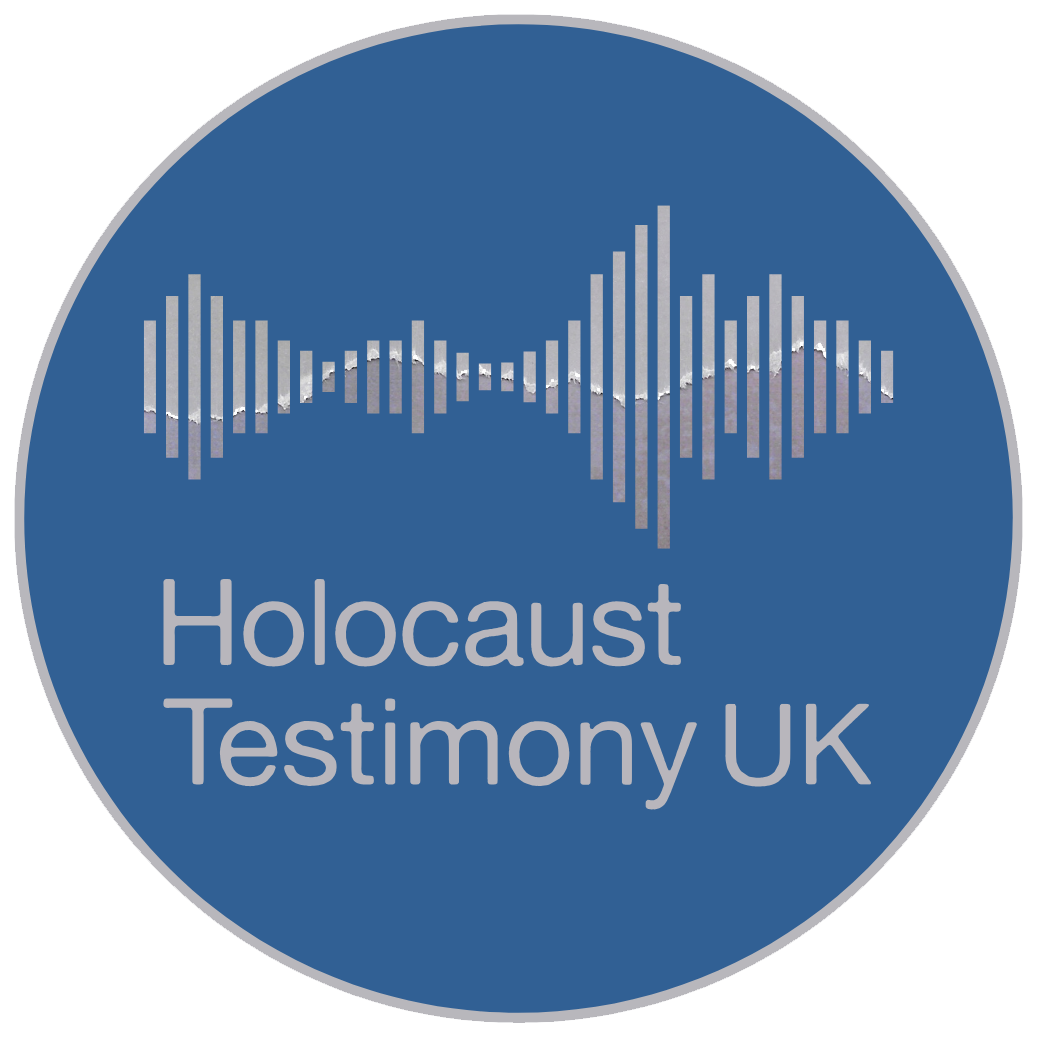External Links
Interview(s) below aren't available on our site but may be available online from partner sites. If not, please contact the partner archive directly to arrange access.

Interviewee Summary
Eva Clarke, nee Eva Nathan, was born on the 29th of April 1945 in Mauthausen Concentration Camp, five days before the liberation of the camps by the American army. In the first part of the interview she describes the lives of her parents and the fate of her mother in Terezin, Auschwitz, KZ Freiberg, and Mauthausen. Her mother Anka (Kaudrova) was a law student in Prague. When she could not study any longer she became an assistant to a milliner. In Prague, she met Bernd Nathan, and architect and interior designer and Jewish refugee from Hamburg. They got married in 1940. Sent to Terezin Ghetto, they found many members of both their families. While they were separate in the day the couple could see each other in the evening. Anka became pregnant and gave birth to a boy. It was forbidden to have children and they had signed a form which said that the baby was going to be ‘euthanasiert’. Nobody came for the baby but it died aged two months old. After Anka’s husband was sent East, Anka volunteered to also be transported. When she arrived in Auschwitz she knew she was pregnant again. When Mengele asked her if she was pregnant she said ‘no’ and was put in a group of women who were sent to work. After ten days in Auschwitz, she was sent to a work camp in Freiberg. She stayed there for six months, her pregnancy unnoticed, severely malnourished.
In April 1945 the Nazis decided to evacuate the camp and Anka was transported on a coal wagon to the Mauthausen concentration camp. The train went through a Czech village whose population gave the people on the train food and clothing. When she arrived in Mauthausen, she gave birth just outside the camp on a cart. A Jewish doctor was called to cut the umbilical cord. The baby was wrapped in newspapers. Five days later the American army liberated the camp. Eva points out that if the Czech people in the village had not given assistance to the people on the train and the Americans had not arrived when they did, she would not have survived. If her brother had survived and her mother would have arrived in Auschwitz with the baby, they would also have not survived. A few weeks after liberation, Anka and Eva travelled to Prague where Anka hoped to find her husband. They moved in with a cousin who survived because she was married to a non-Jewish man. They stayed with them for three years.
In 1948 Anka married Bergman and they decided to leave Czechoslovakia. They were on their way to Canada but Bergman was offered a job in Wales and they moved to Cardiff, where Eva grew up. She learned English quickly and was sent to a Convent school. Once she came home from school and found a bag of her mother’s with a different surname (Nathanova) and she asked her mother about this. Then the mother told her about her two fathers and how her father had died in the war. From then her mother was always very open and talked about the past (in age appropriate ways).This is something Eva appreciates today and feels that it enabled her to tell the story today.
Eva finished school and moved to London where she met her husband (from Wales) and they settled in Cambridge. They had two children and Eva started talking in schools about her and her mother’s experiences in 2000. She has been awarded an honorary doctorate for her work in Holocaust education and today is a very active speaker who travels across the UK.
At a Mauthausen commemoration she met two other survivors who were born within a few weeks of each other. Her mother and her felt very connected to them. In 2015 Wendy Holden published a book about the mothers of these three survivors called ‘Born Survivors’.

Testimonies
10 May 2007
Institution
External Link
External Link
External Link
21 August 1995
Institution
External Link
External Link
External Link
28 June 2016
Institution
External Link
External Link
External Link


INTERVIEWEE:
Eva C.
Born:
1945
Place of birth:
Mauthausen Concentration Camp

Photos
Caption
Institution
External Link
External Link
External Link

Caption
Institution
External Link
External Link
External Link

Caption
Institution
External Link
External Link
External Link

Maps
Place of Birth
Mauthausen Concentration Camp
Place of Interview
Location
Recorded Talks
Place of Birth
Mauthausen Concentration Camp
"The whole reason that we have this interview is to let future generations know what kind of life of we had so they should have a better life, not have to suffer through all the traumas we had to suffer. As time goes on the memory of those days and the importance of it will dim, and this programme will help keep it in people's minds and hopefully let future generations have a better life. It should be a better world."
- Arnold Weinberg, AJR Refugee Voices Testimony Archive.
"The distribution of life chances in this world is often a very random bus"
- Peter Pultzer.

Experiences:
Tag
Tag


